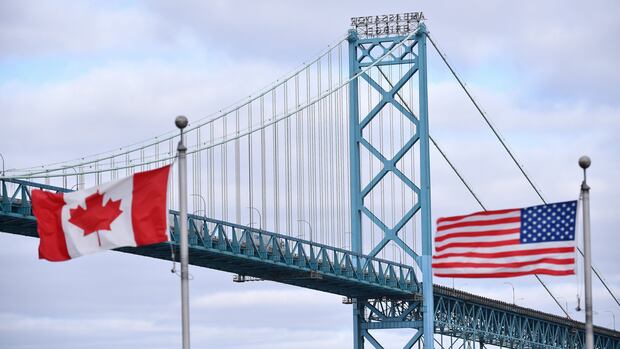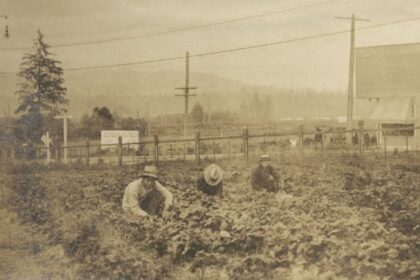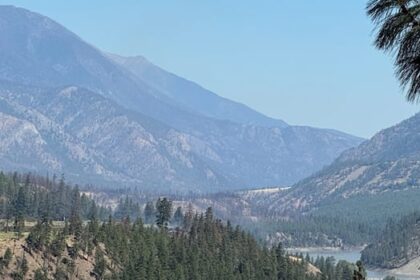Many Canadians continue to boycott travel to the United States, and the U.S. economy is paying the price. A U.S. Travel Association report forecasts a 3.2 per cent decline in international tourism spending in the country for 2025, a loss of $5.7 billion US compared to the previous year. The association largely attributes the loss to a decline in the number of Canadian visitors — a trend that has persisted since U.S. President Donald Trump returned to office in January, sparked a trade war with Canada and began referring to the country as the 51st state. In the latest data for October, the number of return trips among Canadians travelling to the U.S. dropped by 24 per cent for air travel and by 30 per cent for land travel, compared with the same time last year. That marks ten straight months Canadians traditionally make up the largest group of international tourists to the U.S., totalling 28 per cent of its 72.4 million visitors in 2024. Usha Haley, a professor of management at Wichita State University in Kansas, warns that the drop in tourism dollars threatens thousands of jobs. “The tourism sector is labour-intensive and it’s a big employer in many states,” she said, adding that job losses could have a knock-on effect. For example, she said, “The reduced occupancy in hotels will impact labour demand and that’ll impact tax collection, which potentially impacts municipal finances.”WATCH | Trump talks about Canadian travel to the U.S.:Trump asked about Canadians who are refusing to come to the U.S.U.S. President Donald Trump, sitting alongside Prime Minister Mark Carney, was asked about a decline in Canadian travel south of the border and said that ‘Americans don’t want to buy cars that are made in Canada’ but noted he thinks the issue ‘will get worked out’ as there is ‘great love’ between the countries. Trump’s claim that the U.S. has secured $17 trillion in new investments is widely disputed.Last month, Trump said the Canadian tourism problem was “something that will get worked out. There’s still great love between the two countries.”However, since then, he has continued to foster contentious relations with Canada.In response to an anti-tariff ad launched by the Ontario government, Trump broke off trade talks with Canada late last month. He also threatened to hit the country with more tariffs on top of the ones he imposed earlier this year. Trump has said the tariffs are necessary to remedy an expansive trade deficit with Canada. (The country exports more to the U.S. than it imports.)However, America’s decline in international tourism has helped fuel a travel trade deficit, as more Americans are travelling abroad than international tourists are visiting the U.S.The U.S. has historically enjoyed a travel trade surplus. But for 2025, the Travel Association forecasts a deficit of nearly $70 billion US. Haley hopes the large deficit will grab the government’s attention “as the current U.S. administration is so worried about trade balances.”Many Canadians avoiding U.S. this winterThe Travel Association predicts international travel will rebound in 2026, driven by the U.S. hosting the FIFA World Cup and the country’s 250th anniversary celebrations.But there are no guarantees Canadians upset about the Trump administration will reverse course. Even though snowbird Rena Hans of Toronto owns a condo in Florida, she’s adamant she won’t return to the U.S. until Trump is out of office. “Why would I want to give money to a country whose president has stated that they want to annex my country, and has put in massive trade barriers?” Hans asked.Instead, she’s leaving this weekend for a trip to Costa Rica, followed by another one to Turks and Caicos. In the new year, she plans to spend a month in China and Taiwan. “There’s a lot of other places to go,” she said. “I can’t vote [in the U.S.], but I can vote with my dollars.”Snowbird Rena Hans of Toronto says she won’t be going to the U.S. this winter even though she owns a condo in Florida. (Submitted by Rena Hans)A new Angus Reid poll suggests Hans is not alone. Of 1,607 Canadians surveyed in late October, 70 per cent said they would be uncomfortable travelling to the U.S. this winter. Respondents’ top three reasons for avoiding the country were a resolve to stand up for Canada, America’s current political climate, and concerns about heightened security at the border during Trump’s immigration crackdown. In regard to border issues, Hans says the Trump administration’s new registration requirement for long-stay travellers is another deterrent. The rule, which took effect in April, mandates that certain foreigners, including Canadians, staying longer in the United States for more than 29 days must register with the U.S government. The rule mainly affects land border travellers who, if they register at the border, will be photographed, fingerprinted and charged $30 US each.“To be doing it for people that are over the age of 60 that are spending a great deal of money to go down to Florida for three months … it’s a ridiculous thing,” said Hans.The U.S. Department of Homeland Security told CBC News in an email that the registration rule “aligns with the Trump administration’s ongoing efforts to enhance the safety and security of the United States.”WATCH | Snowbirds photographed, fingerprinted at U.S. border:Snowbirds fingerprinted at U.S. land borders Numerous Canadian snowbirds who’ve crossed at a land border to the U.S. were told they needed to be photographed and fingerprinted as part of a new registration process.U.S. tourism groups offer incentivesU.S. states near the Canadian border have already been hit hard by the tourism decline. In response, several tourism organizations representing regions such as Buffalo, Seattle and Upstate New York have launched campaigns offering discounts and deals to woo back Canadians.The latest to do so is Discover Kalispell. The tourism group represents Kalispell, a city and skiing destination in northwest Montana, close to the Alberta border. The organization says year-over-year credit card spending by international visitors in the city between January and September declined by 39 per cent. To combat the problem, Discover Kalispell has created a Canadian Welcome Pass where more than a dozen businesses like restaurants and hotels are offering deals for Canadians through Jan. 15, 2026.“For years, Montana and Alberta have enjoyed a close relationship, Diane Mettler, executive director of Discover Kalispell told CBC Radio.”We just wanted to provide a little incentive,” she said. “We’ve missed them.”WATCH | Kalispall, Montana offers perks to Canadians:This U.S. city is offering perks to entice visitors from CanadaKalispell, Mont., south of the Alberta-B.C. border, has announced a Canadian Welcome Pass, offering visitors from north of the 49th parallel discounts and deals. For nine months in a row, both vehicle and air travel to the U.S. from Canada have seen double-digit, year-over-year declines.Kalispell’s My Place Hotel has seen a 40 per cent year-over-year drop in Canadian customers, according to general manager Bryce Baker.”It definitely matters and it absolutely impacts our bottom line,” he said. As part of the Welcome Pass, My Place Hotel is offering a 26 per cent discount on room rates to Canadians. “I look at it as a way to help, and to thank the people that are still coming down,” said Baker. “We want to make sure that they understand that we really appreciate [them].”
U.S. tourism faces $5.7B US loss as Canadians continue to stay home











